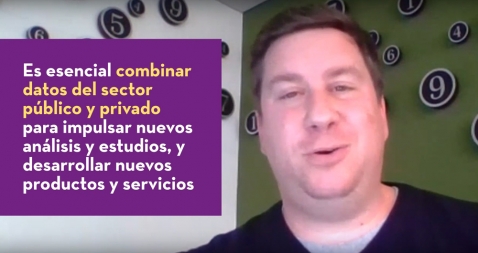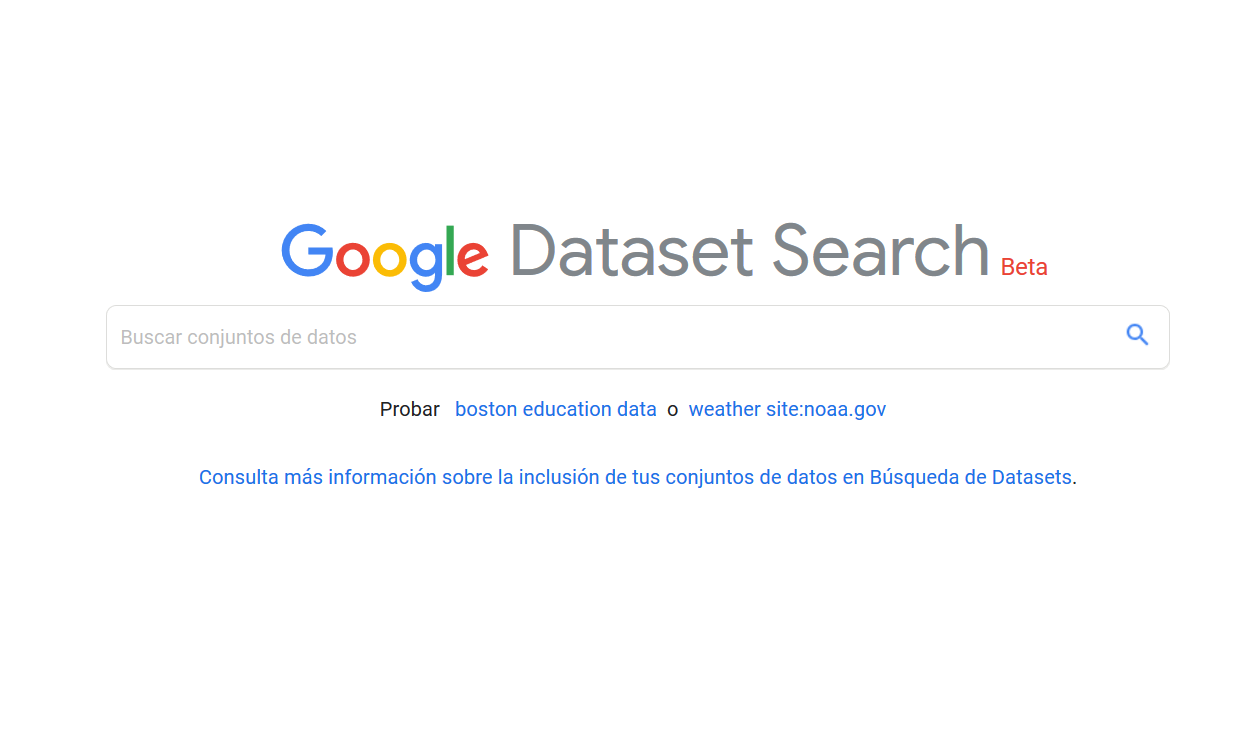Interview with Gonzalo Romero, Director of Google for Education in Spain
Fecha: 27-12-2021
Nombre: Gonzalo Romero
Sector: Science and technology
Organismo, Institución o Empresa: Google

Google is a company with a strong commitment to open data. It has launched Google Dataset Search, to locate open data in existing repositories around the world, and also offers its own datasets in open format as part of its Google Research initiative. In addition, it is a reuser of open data in solutions such as Google Earth.
Among its areas of work is Google for Education, with solutions designed for teachers and students. In datos.gob.es we have interviewed Gonzalo Romero, director of Google for Education in Spain and member of the jury in charge of evaluating the proposals received in the III edition of Desafío Aporta. Gonzalo talked to us about his experience, the influence of open data in the education sector and the importance of open data.
Full interview:
1. What challenges does the education sector face in Spain and how can open data and data-driven technologies help to overcome them?
Last year, due to the pandemic, the education sector was forced to accelerate its digitalization process so that the activity could develop as normally as possible.
The main challenges facing the education sector in Spain are technology and digitization as this sector is less digitized than average. Secure, simple and sustainable digital tools are needed so that the education system, from teachers and students to administrators, can operate easily and without any problems.
Open data makes it possible to locate certain quality information from thousands of sources quickly and easily at any time. These repositories create a reliable data sharing ecosystem that encourages publishers to publish data to drive student learning and the development of technology solutions.
2. Which datasets are most in demand for implementing educational solutions?
Each region usually generates its own. The main challenge is how new datasets can be created in collaboration with the variables that allow them to create predictive models to anticipate the main challenges they face, such as school dropout, personalization of learning or academic and professional orientation, among others.
3. How can initiatives such as hackathons or challenges help drive data-driven innovation? How was your experience in the III Aporta Challenge?
It is essential to support projects and initiatives that develop innovative solutions to promote the use of data.
Technology offers tools that help to find synergies between public and private data to develop technological solutions and promote different skills among students.
4. In addition to being the basis for technological solutions, open data also plays an important role as an educational resource in its own right, as it can provide knowledge in multiple areas. To what extent does this type of resource foster critical thinking in students?
The use of open data in the classroom is a way to boost and foster students' educational skills. For a good use of these resources it is important to search and filter the information according to the needs, as well as to improve the ability to analyse data and argumentation in a reasoned way. In addition, it allows the student to manage technological programs and tools.
These skills are useful for the future not only academically but also in the labour market, since more and more professionals with skills related to analytical capacity and data management are in demand.
5. Through your Google Research initiative, multiple projects are being carried out, some of them linked to the opening and reuse of open data. Why is it important that private companies also open data?
We understand the difficulties that private companies may have if they share data since sharing their information can be an advantage for competitors. However, it is essential to combine public and private sector data to drive the growth of the open data market that can lead to new analyses and studies and the development of new products and services.
It is also important to approach data reuse in the light of new and emerging social challenges and to facilitate the development of solutions without having to start from scratch.
6.What are Google's future plans for open data?
Sensitive corporate data has high survivability requirements, in case a provider has to cancel cloud services due to policy changes in a country or region, and we believe it is not possible to secure data with a proprietary solution. However, we do have open source and open standards tools that address multiple customer concerns.
Data analysis tools such as BigQuery or BigQuery Omni allow customers to make their own data more open, both inside and outside their organization. The potential of that data can then be harnessed in a secure and cost-efficient way. We already have clear use cases of value created with our data and artificial intelligence technology, and endorsed by the CDTI, such as the Student Success data dropout prevention model. Leading educational institutions already use it on a daily basis and it is in pilot phase in some education departments.
The company's goal is to continue working to build an open cloud hand in hand with our local partners and public institutions in Spain and across Europe, creating a secure European digital data ecosystem with the best technology.














